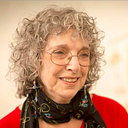Reckoning with the Truth and Trauma of Adoption: Film Review
Is there one amongst us who doesn’t know someone touched by adoption: Your neighbor, co-worker, cousin, partner, or your mother . . . or simply has an opinion about adoption? Who amongst us hasn’t heard jokes or preconceived notions about adoption or seen it depicted on various sitcoms and dramas? And of course, the mysterious unknown (yet suspect) origins of adoptees are perfect fodder for notorious “bad blood” horror movies.
Most often, however, adoption is often described as a gift. A brave, loving sacrifice. Words such as unwanted and conversely lucky are often associated with adoption. As well as words like rescue and save. The act of adoption is often bizarrely paired with pregnancy termination as if they were two sides of a coin — debatable choices. NOT!
Reckoning with The Primal Wound isa documentary produced by Rebecca Autumn Sansom, an adoptee and her first mother, Jill, featuring Nancy Verrier and her groundbreaking, iconic book The Primal Wound. It explodes such misconceptions and microaggressions, and what Amanda Baden, Professor in the Counselor Education Program at Montclair State University, calls microfictions, which can in reality be enormous, MARCO-fictions.

It lifts the veil and introduces the public to the reality of adoption from the perspective of adoptees and the mothers they were separated from. It bares naked the pain and struggle of living with the Unknowing — the not quite fitting in, and the pretending, that is adoption. The Unknowing of what became of the child you carried and birthed and the Unknowing of who you look like and why you were let go and given to unrelated strangers. Who am I and how and why did I get here?
Reckoning rips off the neat bow that society has wrapped adoption in wherein an allegedly “unwanted” baby or child is “saved” by a loving family. It challenges the cliches that adoption is “good,” a win-win, and everyone lives happily ever after. It shares a glimpse of reunification and confronts the feelings of it being a betrayal — even to a lifelong friend. It replaces the rose-colored view of adoption with a glimpse into the very real feelings of loss and trauma that is adoption for both mother and child.

As Nancy Verrier says: Adoption is simply “not natural.” We try to pretend it is “the same as” being born into a family — and many adoptive parents believe it is. We often hear adoptive parents proclaim they love their adopted child “the same” as if they were born to them, a refrain analogous to someone claiming they are “color blind” and don’t see race.
To be blind to another’s reality is insultingly dismissive of their roots, culture and heritage. And so it is with adoption. For those who adopt to proclaim that it is the “same” as if their child were born to them because they love them equally as much is to deny the deep traumatic grief that brought that child into their lives and to instill subtle expectations of denial on the child. It is to say your heritage is unimportant or too shameful to talk about, and thus you are unimportant or shameful. Adoption creates an unhealthy denial of reality.
Dr. Herbert Weider, a psychiatrist who has studied adoption summed it up like this:
”The traditional blood-kin family is composed of one mother, one father, and their child or children. The adoptive family is composed of two mothers, two fathers and a child common to them. Although society, and to some extent adoptive parents, would like to pretend that it is exactly like a traditional family, it is the differences that are extremely significant in each member’s life."
Reckoning lays bare a Truth that is both raw and poetic. It’s dynamic, powerful, soulful and myth shattering.
Tickets to a February 26 screening are available here. Don’t miss out!
